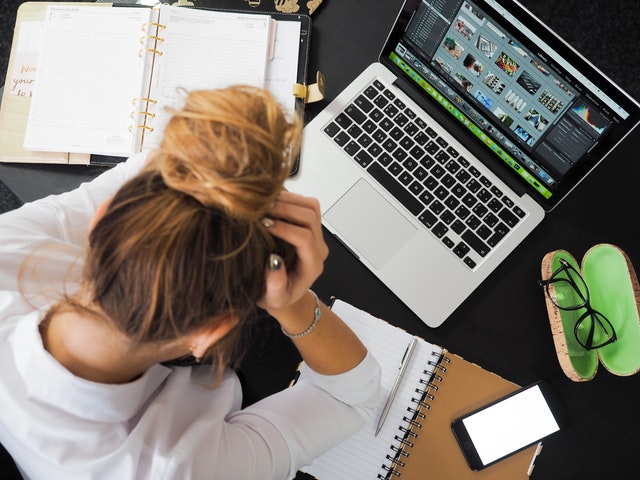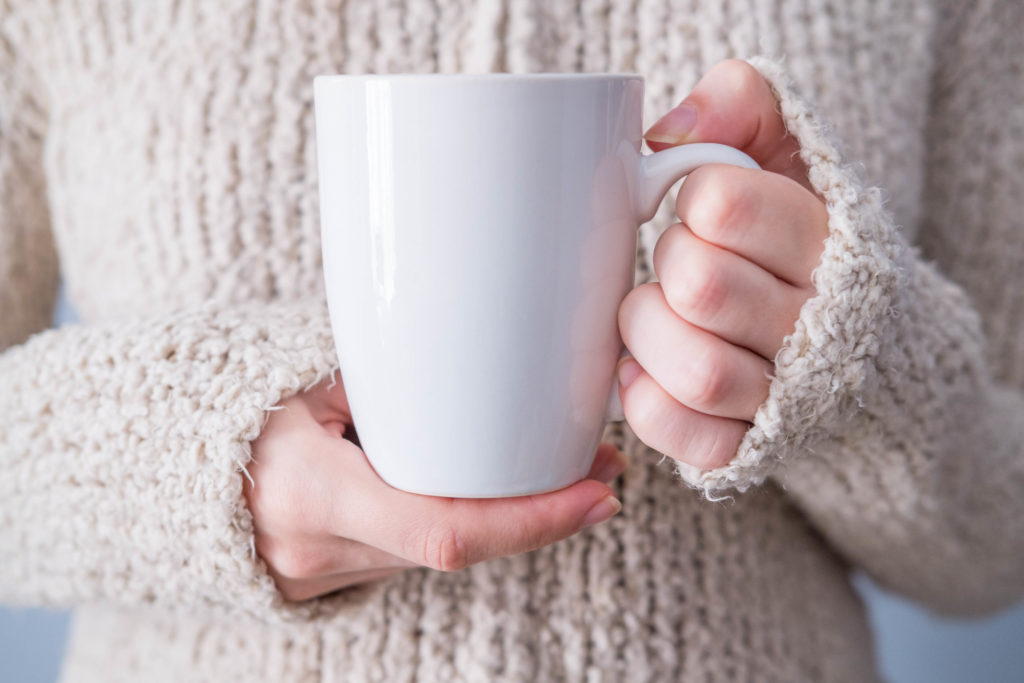Let’s talk about burnout.
Burnout is a state of emotional, physical, and mental exhaustion caused by chronic stress. It occurs when you feel overwhelmed, emotionally drained, and unable to meet constant demands. You become less interested in and motivated by things that used to excite you as the stress continues to mount.
Burnout feels insurmountable once you’re in the throes of it. Anything you might want to achieve seems unattainable and a little hopeless. Defeatist mindset takes over and you often are willing to accept defeat before you even start; beginning at all seems like a waste of energy.

In this pit of despair, how is it possible that cultivating elegance and femininity could be important? How are we supposed to pick ourselves up by our our own bedazzled bootstraps and keep going? It seems like it’s going to take a lot of energy just to get through our to-do list, let alone to do so taking pride in the result.
Always Trying, Never Being
I read a book last year in which a teenage son described his mother as “always trying, never being”. I wish I could remember which book it was because the author did a fabulous job of portraying a woman who was never quite happy with herself, who always tried to be what she thought other people expected her to be, without explicitly saying that’s what she wanted to portray.
At any rate, that phrase struck a chord for me. I’ve seen that woman. I’ve been that woman. Sometimes I think I still am that woman in the right situation. I think we all are, at least from time to time.
Do you remember the first time you started trying instead of just being? I think it usually starts when someone denies or rejects our reality, even in small ways. As a child, maybe you wore a pair of purple pants that you loved, but others made fun of you for them on the playground so you never wanted to wear them again. You were just being you, but others didn’t accept you so you felt you had to start trying to be something else.
Constant Adjustment Leads to Burnout
The cycle of trying, being rejected, adjusting, and trying again repeats over and over again throughout our lives. For a lot of us I think by the time we reach our thirties we’ve made so many adjustments away from the person we are when we’re left to just “be” that we don’t even know how to just “be” anymore.

And not only have we lost touch with ourselves, we are burning out from the pressure of constantly needing to make adjustments and then maintain them because they don’t come naturally to us. It’s exhausting to maintain a persona that isn’t inherently who we are. Then we add things on top of it like knocking out to-do lists, taking care of families, commanding the board room, teaching a class or getting a promotion.
Constant adjustments and constant maintenance of something unnatural will cause chronic stress, and chronic stress leads to burnout. And nowadays, constant comparison is a primary source of that compulsion to make regular adjustments. Women everywhere are experiencing chronic stress because of it.
I’m not suggesting that comparison is the only source of chronic stress, of course. Plenty of other things in life can have an enormous impact as well, but we will discuss that in Part II.
The Influencer Effect
Social media creates a huge obstacle to remembering how to just be. Influencer culture keeps us blind to it because we think that we admire and look up to influencers. We think we rely on them for product suggestions, and allow them to go out and explore the market for us and tell us what to buy.

But there’s a reason that the concept of “hate following” exists. I personally think it comes down to the fact that we follow people who we want to like, but we find ourselves feeling jealous instead. We can’t help but compare our lives to the ones splashed on the highlight reels, and often we find ourselves lacking. So we continue to watch and look, and we buy the next thing that they suggest in the hopes that it will make up for the perceived lack. But it never quite works, does it? Frustration mounts, but we’ve lost ourselves enough that we feel the only way to move forward is to keep trying, even if we hate it. Ergo, “hate following”.
I’m not trying to say that influencers are intentionally out trying to make their viewers feel badly about themselves or like they need to keep up. But even in the absence of intent, the effect is the same.
The Path to Burnout
Think about your life for a moment. And think of all the things you judge yourself for not having, or not achieving, or not being. What is the standard you are measuring yourself against? Where does it come from? What if you removed that source from your periphery? Would you still feel pressured to achieve the same standard? Would you still want the same things?
Maybe you watch lifestyle influencers who share their massive designer shoe collections, or maybe you’re addicted to those “top ten designer handbag” videos. Even if you can’t actually afford to buy them, do you feel pressured to? Do you feel like you aren’t measuring up or like your bargain bag isn’t as good as you once thought?
Do you watch fitness influencers who make you feel like your body fat percentage is too high? Or like your diet isn’t on point, even if your blood work is healthy and you maintain a healthy weight?
These are all examples that have wrapped me up in the past. I’ve made big life changes and big investments that have hurt me in the long run because I was so busy subconsciously comparing myself to other people that I didn’t realize how perfectly fine I was just being myself.
All of this contributed to my burnout. I was constantly adjusting, constantly trying, and it was exhausting.
Getting Back to Center
The first step on the path to just being (and I’m still on it, for the record) was to turn off the outside influence. I stopped following the influencers that had this effect on me. Instead, I started following people who truly inspired and motivated me in a way that didn’t make me feel badly about myself.
I experienced an immediate pressure release. Right away I appreciated all the abundance I already had in my life that I had somehow been overlooking and taking for granted. Remember what I said about the standard you measure yourself against, and identifying where it comes from? For me, it turned out that someone else had set the standard I was measuring myself against. When I stepped away from that, I got a better picture of what I wanted my life to look like, and was much happier as a result.
I was finally able to stop trying, and just be.

This calm feeling enabled me to slow down and start asking myself what my real desires were. Personally, I’m still cultivating this skill and refining myself as I go, with as little external influence as possible. When I feel most in alignment with myself and my desires, I call that poise.
Finding your center, finding your poise, means slowing things down to make sure you are in alignment with yourself. This process of slowing down has made room for other things for me, too. It helped me find confidence in my femininity and it helped me make space to start considering what’s most important to me in life.
Other Sources of Burnout
This has only been the beginning. When you create this opportunity for yourself to look objectively at the life you’ve built, it’s easier to see what belongs and suits you and what doesn’t. If you’re experiencing burnout, I hope this helps you get some perspective about how social media is influencing you. If you’ve avoided influencer pressure or you’ve already done this work and are still experiencing burnout, we’ll look at other common sources of chronic stress in Part II.
